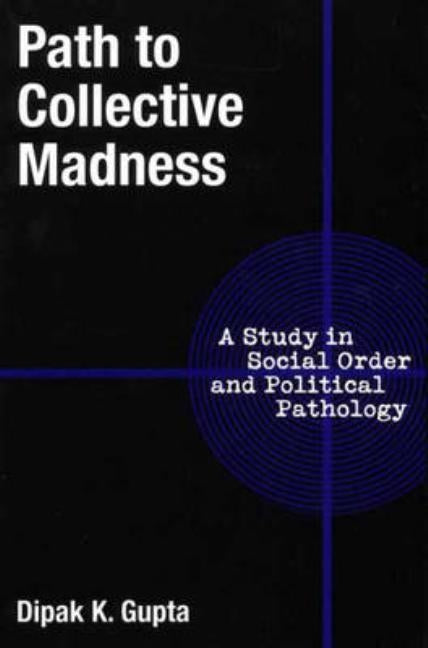Dipak K. Gupta
Path to Collective Madness: A Study in Social Order and Political Pathology
Path to Collective Madness: A Study in Social Order and Political Pathology
Couldn't load pickup availability
Share
Why did the Rwandan genocide take place? How could parents feed their own children drinks laced with poison in Jonestown? As we see many parts of the world being engulfed in fratricidal frenzy, we wonder if it can happen in this country. Gupta examines contemporary cases of genocide and mass murder and seeks to explain why certain societies are more prone to these actions and others are relatively immune.
Gupta sees a dialectical tension between our two identities: the self and the collective. The end of the medieval period was marked by the emergence of individualism in Europe. With time, the march of individualism engulfed the entire Western world and permeated every aspect of its culture, tradition, and academic paradigm. Neoclassical economics is the embodiment of this single-minded pursuit of the rationality of individualism. However, our psychobiological evolution has also imbued us with the irrepressible desire to form groups and to act upon its welfare. The reason for this eternal conflict lies in our own struggle with our two identities. When the pendulum swings to the extreme end of collectivism, genocide and other forms of social abnormalities--collective madness--occur. When we move too far into individualism, people tend to seek something greater beyond selfish pursuits. Through his panoramic view, Gupta provides an explanation for both social order and political pathology that will be of interest to students, scholars, and other researchers involved with ethnic conflict, collective behavior, and conflict resolution.
Binding Type: Paperback
Author: Gupta, Dipak K.
Published: 06/30/2001
Publisher: Praeger
ISBN: 9780275972219
Pages: 296
Weight: 1.00lbs
Size: 9.52h x 6.08w x 0.83d


